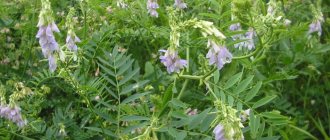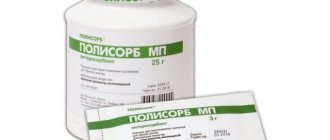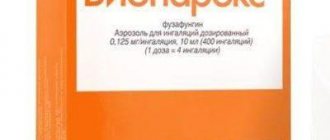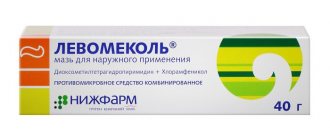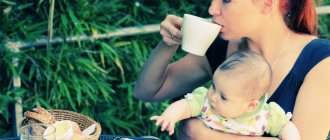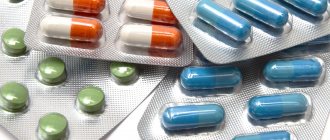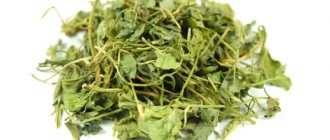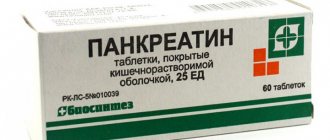The body of a nursing mother is especially vulnerable to various types of colds and viral infections, among which pathologies of the respiratory system with coughing attacks are common. The main task of patients is to quickly cope with the disease and not harm the newborn.
Herbal remedies come to the rescue. The list of approved drugs is dominated by drugs based on marshmallow root, for example, Mucaltin. Let's take a closer look at how to take Mucaltin during breastfeeding.
Composition and pharmacological action
Mucaltin is a herbal medicine created on the basis of a polysaccharide mixture extracted from marshmallow (Althaeae officinalis L). Marshmallow root consists of plant mucilage, trimethylaminoacetic acid, aspartic acid amide, pectin, and starch.
Baking soda, calcium salt and stearic acid, and tartaric acid are used as excipients.
The drug has moderate expectorant and antitussive properties.
The marshmallow root extract activates the secretion of the bronchial glands, increasing the production of mucus and the activity of epithelial tissue, which thins the mucus and stimulates its rapid release from the respiratory canals. The drug relieves inflammation of the mucous membrane caused by tissue injury during coughing.
Mukaltin and its composition
In order to understand the effect of any drug on lactation, you need to familiarize yourself with its composition. One of the components of mucaltin is a mixture of polysaccharides from marshmallow, which can have a fairly powerful effect on the lining of the bronchi. Thanks to this, this drug is endowed with anti-inflammatory properties and is recognized as one of the best expectorants. Mucaltin reduces the secretion of accumulated mucus, changing the properties and accelerating the removal of the latter from the bronchi.
Such a component of this pharmaceutical product as sodium bicarbonate should also be given its due. It is he who has antitussive, secretolytic plus expectorant effects.
Mucaltin is used in the treatment of both acute and chronic diseases of the respiratory tract, effectively combating difficult to separate sputum. Such ailments of nursing mothers as tracheitis, pneumonia, colds, flu, tracheobronchitis are subject to this remedy, only when using it you need to familiarize yourself with the existing contraindications, which we will describe below.
Is it possible to use Mucaltin while breastfeeding?
When asked by patients: is it possible to take Mucaltin while breastfeeding, therapists give a positive answer. This is due primarily to the organic origin of the active components of the drug and the plant nature of the excipients.
The drug actively fights cough without harming the baby's health. It has been proven that Mucaltin does not change the structure of mother's milk during breastfeeding.
Independent use of Mucaltin while breastfeeding is unacceptable. Whether Mucaltin can be used during breastfeeding is decided in each individual case exclusively by the attending physician based on a thorough examination of the patient.
What is Mucaltin - the composition of the drug
Before understanding the specifics of using Mucaltin during breastfeeding, you should find out in more detail the composition of the drug.
According to the instructions for use, the composition of the medicinal product includes:
- Polysaccharides of marshmallow root. This plant has long been used to treat coughs. The substances it contains help remove mucus from the lungs, diluting it. Marshmallow is also effective as an anti-inflammatory and emollient;
- Sodium bicarbonate;
- Pectins, as well as a number of excipients.
It is prescribed for the treatment of respiratory diseases in acute or chronic form, especially if sputum discharge is difficult:
- Pneumonia;
- Tracheitis;
- Bronchitis;
- Pulmonary tuberculosis;
- Laryngitis and many others.
Instructions for use during breastfeeding
Mucaltin during lactation is indicated for acute and chronic diseases of the respiratory system that occur against the background of the formation of poorly separated viscous sputum. The drug is prescribed for pneumonia, bronchitis, including obstructive bronchitis, bronchiectasis, laryngitis, tracheitis and other pathologies accompanied by inflammation of the respiratory system.
When breastfeeding, Mucaltin should be taken when the first symptoms of the disease appear. Mucaltin should not be used simultaneously with codeine-based medications, as this makes it difficult to separate liquefied sputum.
How to use?
During breastfeeding, therapists advise dissolving Mucaltin in liquid (in the instructions for use of the drug, this method of administration is recommended for children). This should be done as follows: dissolve the medicine in 1/3 of water/milk heated to 37 degrees. During breastfeeding, drinking dissolved Mucaltin should be done slowly, in small sips.
You can simply take the tablet with water.
The patient decides independently how to take Mucaltin during breastfeeding. However, dissolution of Mucaltin in liquid by a nursing mother promotes the most complete manifestation of the therapeutic effect.
Dosage
The dosage of Mucaltin during breastfeeding is calculated exclusively by the attending physician. Self-appointment is not permitted.
Mucaltin during lactation is prescribed 1 tablet (less often 2), which is taken in the manner described above 3-4 times a day 15-20 minutes before meals. After half an hour, you should eat a hearty meal.
The duration of the therapeutic course of Mucaltin for hepatitis B is 7-14 days.
Special instructions when breastfeeding
When prescribing Mucaltin for hepatitis B, do not forget about contraindications. This herbal preparation should not be used if you are allergic to the organic ingredients in the composition, or if you have a stomach or duodenal ulcer.
Compliance with the following recommendations of specialists will help to accelerate the therapeutic effect of taking Mucaltin during breastfeeding:
- Compliance with air and thermal conditions. Dry air irritates the mucous membranes of the respiratory tract and worsens the cough. Therefore, it is necessary to ensure that the air temperature in the room does not exceed 22 degrees Celsius, and the humidity is 50-70%. This requires regular ventilation of the room or purchasing an air humidifier.
- Frequent and abundant drinking will help quickly remove painful microflora from the body and will have a beneficial effect on lactation. Warm tea with raspberries, ginger, lemon, berry fruit drinks (especially cranberry, lingonberry, currant), boiled milk with honey, decoction of rose hips, chamomile, calendula, sage. The temperature of the liquid consumed should correspond to body temperature, that is, about 37 °C. However, before consuming decoctions, fruit drinks and infusions, you should make sure that mother and child are not allergic to the plants, berries, and fruits used. If you are intolerant to the components, ordinary water at room temperature is perfect.
- Rinsing the mouth, larynx and nasal rinsing. Rinsing with tincture of calendula, chamomile, furatsilin or a water-salt solution will help destroy pathogenic bacteria. For these purposes, you can purchase ready-made saline solution or Aquamaris, Aqualor with sea salt at the pharmacy.
In the absence of elevated temperature, nursing mothers can be given inhalations with saline solution or mineral water. They are also an excellent way to combat productive coughs.
Contraindications
The manufacturer mentions allergic reactions as the first item on the list of contraindications for taking Mucaltin. A number of diseases affecting the digestive tract and other diseases that are difficult to correct look alarming:
- Women suffering from gastritis should take Mucaltin with caution during breastfeeding;
- a stomach or duodenal ulcer is another contraindication;
- gastroduodenitis is an insidious disease in which it is better to avoid acidic medicine (it increases acidity, so it is not suitable for patients with increased secretion of gastric juice);
- If you are diagnosed with pneumonia, you can take Mucaltin only under the supervision of a doctor;
- the medicine may be ineffective for tracheitis;
- Beware of taking the drug for bronchial asthma;
- Diabetes mellitus is another contraindication to the use of Mucaltin.
Some pediatricians believe that while taking Mucaltin, it is better for a nursing mother to transfer the baby to artificial feeding. But here another problem arises - choosing a formula can be extremely difficult, the child may refuse it, because breast milk is tastier and more nutritious. Colic in the tummy from artificial formula is also a common occurrence, so think about whether you should give up breastfeeding.
Review of reviews on use during lactation
Mucaltin during breastfeeding (patient reviews indicate this) is an effective and inexpensive remedy. Young mothers note the natural composition of the product, effectiveness and safety. Using Mucaltin during breastfeeding, they did not notice any changes in the quality of milk and in the behavior of the newborn. Already on the second day of using Mucaltin during lactation, patients feel a significant improvement in their well-being: coughing is not as frequent, sputum is separated better. Many mothers combined Mucaltin treatment with gargling with a water-salt solution and inhalations.
The only drawback that most patients point out is the not very pleasant sour taste. But the tangible therapeutic effect and low cost of Mucaltin force nursing mothers to come to terms with this.
Can nursing mothers take Mucaltin?
Health problems that arise in young mothers during breastfeeding are truly a disaster, since most medications are contraindicated.
Even a common cough with seasonal viral infections becomes a real test. During the treatment process, the most important rule is: after the first manifestations of symptoms, seek help from a doctor and avoid self-medication. Any drug can pass through breast milk to the baby and harm its development. That is why the doctor must prescribe a course of treatment himself.
One of the old and proven remedies for cough is mucaltin. The drug is prescribed to children from one year of age. What should nursing mothers do? Is it worth starting treatment with mucaltin tablets while breastfeeding? And what other options are there for treating cough while breastfeeding?
Is it possible to use mucaltin during lactation?
Mucaltin is a drug with a homeopathic herbal composition that is effective for coughs with viscous sputum, which occurs with inflammation of the respiratory tract in chronic and acute forms.
Medicinal properties of mucaltin:
- emollient;
- expectorant: stimulates the formation of liquid mucus, which helps clear the lungs;
- anti-inflammatory;
- antiviral;
- enveloping: thanks to the active substances, it covers the mucous membrane with a protective layer that prevents secondary irritation from occurring.
In addition, the medicine does not affect the taste and composition of breast milk, which means that mucaltin is ideal for nursing mothers.
Composition of mucaltin
The lining of the bronchi is affected by an active substance - marshmallow polysaccharides (a medicinal plant widely used in the treatment of cough). The mucus contained in the root of the plant quickly and effectively helps relieve irritation and inflammation that occurs in the bronchi.
The drug mucaltin helps to influence sputum: by diluting it, it leads to rapid elimination, while at the same time softening the lining of the respiratory tract. This normalizes the functioning of the lungs and improves the general condition of the woman.
Another component of the medicine is sodium bicarbonate, which has an antitussive effect with an expectorant effect.
Mucaltin can be prescribed for the treatment of bronchitis, tracheitis, laryngitis, pneumonia in acute or chronic form.
Features of application
During treatment with mucaltin tablets, the most important thing is the correct dosage, which can only be set by the attending physician (individually), depending on the patient’s condition.
In most cases, the drug is taken up to 4 times a day, 1-2 tablets before meals with an equal time interval between doses. Please note that the amount and frequency vary, so do not treat yourself, be sure to consult a specialist!
Mucaltin must be absorbed. As a last resort, dissolve in warm water or milk and drink. The tablets have a pleasant, slightly sour taste and do not change the taste of breast milk.
Normally, with the correct prescription of mucaltin and following the doctor’s advice, the nursing mother’s recovery occurs 4-5 days after the start of the course of treatment. If improvement does not occur, you should consult a doctor for a new prescription, since addiction to mucaltin can occur, which leads to the use of the drug to no avail.
Contraindications and side effects
The drug mucaltin is not prescribed in the following cases:
- diabetes mellitus;
- stomach ulcers;
- tuberculosis;
- gastritis;
- under 1 year of age;
- allergies to the components of the tablets.
Rarely, during therapy with mucaltin, a nursing mother may experience nausea, an allergic reaction, pain and heaviness in the stomach.
It is also necessary to monitor the baby’s condition during treatment. To do this, try taking one mucaltin tablet and monitor whether there are any changes in the baby’s behavior or condition. If after 1 hour everything is as before, you can begin treatment.
Recommendations for a speedy recovery
Several factors influence recovery:
- compliance with doctor's orders;
- mode;
- environment.
In order to speed up the process and protect the child from infection, the room must be regularly ventilated. On average, the time is 15 minutes every hour. Before the procedure, the mother and child must leave the room.
In the cold season, it is important to ventilate rather than cool the room. To do this, you need to open not the window, but half the window.
Thus, in the shortest possible period of time the room will have time to “refresh itself”, and the furniture will not have time to cool down.
If only the window is opened, the time for quality ventilation increases, but not only the air, but also the objects in the room have time to cool down.
An air temperature of +22°C with air humidity of 50-70% is considered comfortable for recovery.
Drinking plenty of fluids is another rule of quality treatment.
You can drink fruit drinks, warm milk with a small piece of butter and a pinch of baking soda (especially important before bed), rosehip decoction, herbal tea with the addition of lemon, raspberries (provided that the baby does not have allergic reactions to these products). You also need to be especially careful when using bee honey in treatment. This is a fairly strong allergen that can cause a corresponding reaction in the baby.
Before going to bed, it is advisable to insulate your throat with a warm scarf.
Gargling is an old, proven way to combat coughs and inflammation of the throat. A warm decoction of chamomile, calendula or sage will be beneficial. The procedure must be repeated every 3 hours.
Do not forget about the furatsilin solution. You can use either a ready-made composition or one you prepare yourself. To do this, dilute 1 tablet of the product in 200 ml of warm water and rinse after meals, but not more than 3 times.
A soda-salt solution familiar from childhood is also useful for gargling. Perform the procedure every hour. In 200 ml of warm water, combine half a small spoon of soda and a teaspoon of salt.
All of these methods will help relieve inflammation and swelling from the mucous membrane, disinfect, and heal irritated areas.
If a nursing mother fundamentally does not want to use any medications, you can inhale with ordinary saline solution, which will effectively help get rid of a wet cough.
To enhance the therapeutic effect of rinsing and taking tablets, you can use external ointments: “Vicks Active”, “Doctor Mom” in the form of rubbing, avoiding the chest area during the procedure.
Folk remedies
There is no doubt about the naturalness of folk remedies, and the experience of treatment has spanned many generations. Therefore, mothers often refuse drug treatment in favor of traditional medicine. But, remember that even this method must be discussed with a doctor in order to avoid undesirable consequences and the development of complications.
Such recipes can only be used if mother and baby have no allergic reactions to the components.
- Plantain infusion will help in the fight against cough. To prepare it you will need 4 tbsp. crushed leaves, thoroughly washed with running water or ready-made raw materials purchased at the pharmacy. In an enamel bowl, pour 0.5 liters of boiling water over the plantain. Cover with a lid and wrap well. Leave for 1 hour. Strain and take 2 tbsp orally. up to 4 times a day.
- For hoarseness and cough, try the milk and fig recipe. To do this, chop fresh figs and add to a glass of milk. Cook in an enamel bowl and then cool. Next, grind with a blender until smooth. Take 1 glass up to 3 times a day.
- A banana with milk will help with a painful cough. Grind the banana in a blender to make it smooth and add to the milk. Bring to a boil and cool. After this, you can drink the product. Apply 3 times a day. Each time the drink must be freshly prepared.
- Another option for a cough remedy: made from milk and onions. Cut a large onion into rings and place in an enamel bowl with milk. Bring to a boil and simmer over low heat for 15 minutes. After this, remove the onion from the milk and cool. Store the product in the cold, taking 1 large spoon every hour when warm.
- To disinfect a room and treat odors, you can try aromatherapy. Use lemon, lavender, cinnamon and grapefruit oil.
At the first symptoms of the disease, it is necessary to begin treatment immediately. A timely appointment and measures taken are the key to a quick recovery for a young mother, on which the health and normal development of the baby depends.
Source: https://babymir.net/mukaltin-pri-grudnom-vskarmlivanii-chto-sleduet-znat-kormyashhim-mamam/
Treatment with the drug during pregnancy
According to the instructions, Mucaltin is approved for use during pregnancy as part of complex therapy for respiratory diseases. However, women can use a medicine based on marshmallow root while carrying a child only on the recommendation of a therapist.
Therapists prescribe Mucaltin with caution in the first trimester of pregnancy, since during this period the formation of the child’s organs and systems occurs. There is a possible risk of miscarriage.
In subsequent trimesters, the risk becomes minimal, since the vital organs and systems of the fetus are formed, and the placenta protects it from the harmful effects of negative factors.
Pregnant women should refuse treatment with Mucaltin if they are intolerant to the components in the medicine.
The daily dose is no more than 100 g and is distributed into 3-4 doses of 1-2 tablets per day. Considering its specific herbal smell and sour taste, doctors advise pregnant patients (especially those suffering from toxicosis) to crush the tablet and stir the resulting powder in warm water/fruit juice/compote until completely dissolved.
The drug mucaltin for the treatment of cough during breastfeeding
One of the inexpensive and effective expectorants is Mucaltin; it is used for wet and dry coughs, as well as for inflammation of the lower respiratory tract. Release form: gray tablets. This color of the medicine is due to the presence of only organic compounds, herbs and the absence of chemicals. The active element in Mukaltin is marshmallow extract.
Mucaltin can be used by both adults and children. Mucaltin for breastfeeding is also allowed. Let's take a closer look at this tool.
Useful properties of the drug
Due to its composition, the drug Mucaltin:
- removes phlegm from a wet cough;
- with severe dryness, it stimulates the secretion of liquid mucus, due to which the body frees the lungs, allowing them to function properly; For more information about cough while breastfeeding, read the article How to treat cough while breastfeeding?>>>
- activates the ciliated epithelium, accelerating the release of sputum and cleansing the respiratory tract;
- has anti-inflammatory as well as antiviral effects, the active substances cover the mucous membrane with a protective membrane, due to which secondary irritation does not occur.
Important! When breastfeeding, you need to be as careful as possible in choosing a medicine for both the baby and yourself.
Breastfeeding and Mucaltin
We all know that if any symptoms of a cold occur, a nursing mother must immediately begin treatment, otherwise the disease may become chronic and you will be forced to switch to antibiotics.
The consequences of taking antibiotics are most often expressed:
- In case of upset bowel movements in an infant, read the current article Diarrhea in an infant>>>
- In the occurrence of allergic reactions;
- Abdominal pain and disturbances in the functioning of the digestive system.
Unfortunately, it is almost impossible to protect yourself from viruses, so the main thing is not to delay starting treatment. Pediatricians, when asked whether a nursing mother can take Mucaltin for a cough at the initial stage, allow it to be taken.
This drug is made from organic components, so Mucaltin is allowed during breastfeeding, the instructions clearly demonstrate this. The main thing is to read it carefully before starting to take it so that an overdose does not occur.
Important! Lactation is an important stage in a baby's development. If you are breastfeeding, you need to be careful about your treatment during acute respiratory infections.
Dosage and method of administration
Can Mucaltin be swallowed while breastfeeding or does it need to be chewed? How to take Mucaltin during lactation?
Rules for use during lactation:
- Do not swallow - dissolve. By dissolving the tablet, you promote additional lubrication of the throat and trachea, thus covering the maximum area of inflammation;
- Dissolve and drink. If you do not like to dissolve tablets, or do not like the sour taste, you can dissolve the tablet in milk or warm water. Try to drink slowly, in small sips. Article on the topic: Is milk ok for a nursing mother?>>>
- Mucaltin should be dissolved 4 times a day, 1 tablet 15-20 minutes before meals. This time is enough for the medicine to take effect. Since the tablet tastes sour, you need to eat after taking it, otherwise the secreted gastric juice may contribute to problems with the gastrointestinal tract;
- Do not drink Mucaltin for more than 5 days. Our body adapts to the medicine quite quickly, so taking it for more than 5 days will not give the desired results. If the cough problem is not resolved, you should consult a therapist to continue treatment with other means.
Analogs of Mucaltin or how to replace it during lactation
If you need to quickly get rid of phlegm when coughing, you can use Mucaltin and chest cough elixir.
Interesting! Breastfeeding is not a reason to completely refuse treatment for colds, because you can choose medications for yourself that are approved for breastfeeding women and will not affect lactation itself.
A good alternative is to use inhalation. This method is also effective, the main thing is to do it at least 3 times a day. When breastfeeding, it is better to use saline solution as the basis for inhalation. Also, to treat a wet cough, you can use syrup “Doctor Mom”, “Ambroxol”, “Vicks Active”.
Source: https://uroki4mam.ru/mukaltin-pri-grudnom-vskarmlivanii
Recommendations
It should be understood that when treating cough with this drug while breastfeeding, it is necessary to supplement it with several methods that help the drug to quickly combat unpleasant sensations.
- Be sure to ventilate the room where you spend a lot of time. It would be a good idea to use a humidifier at this time. The ability to breathe moist (at a humidity level of 50-60%) and cool (with a temperature of +18C) air allows the body to fight the infection on its own.
- Drinking plenty of fluids is considered beneficial. This is no secret and both therapists and pediatricians talk about it. You should drink liquid at a warm temperature, which is approximately 36 degrees. Tea with milk is quite effective for coughs. If you love honey, then first try a small amount to determine if your baby is allergic to this product.
- You need to gargle with infusions of calendula, chamomile and also use a solution with soda.

